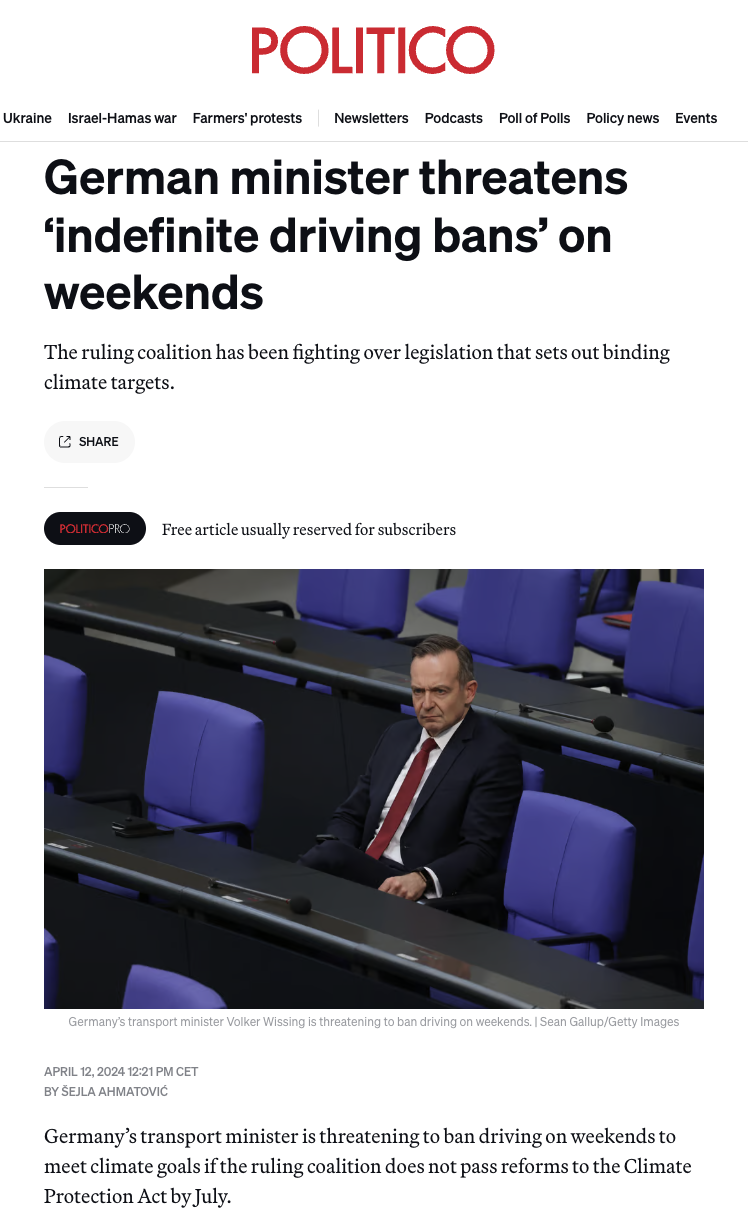Germany missed its climate target for 2021 and is likely to miss them again this year and next, according to Vice-Chancellor Robert Habeck who said the country “must triple the pace of emission cuts” to reach its 2030 goals.
2021 was a bad year for Germany’s climate ambitions. Renewable electricity generation hit a two-year low due to exceptionally low winds and carbon emissions picked up again after a brief drop caused by COVID-19 restrictions.
With the Greens at the helm of a super-ministry responsible for the economy, energy and climate, expectations are high that the new government will be able to turn things around.
Sounds familiar:
The Vice-Chancellor outlined seven priority measures that he hopes will be adopted by the summer:
A solar acceleration package, which will include increased capacity tenders and making additional open space available to solar installations, making solar mandatory for new business buildings and commonplace for private homes, as per the coalition treaty.
Extra space for onshore wind energy. Habeck aims to speed up the expansion with a “wind on land” law and to reduce minimum distances to military infrastructure to obtain additional space as fast as possible. Around 7 to 9 GW could be obtained by getting closer to navigation and military installations, his ministry confirmed.
Getting soaring electricity prices under control. Starting in 2023, Habeck aims to have the renewable energy surcharge removed from consumer prices and transferred to the state budget.
Carbon Contracts for Difference (CCfD), to speed up industrial decarbonisation. CCfDs are a financial tool aimed at bridging the gap between carbon prices on the EU market and low carbon technologies, which require a higher cost of CO2.
Producing 50% of climate neutral heat by 2030. The decarbonisation of residential heating should function in tandem with energy efficiency, the climate ministry said. To that end, Germany will up the funding for energy efficient heating networks as soon as the Commission greenlights the state-aid.
A review of the buildings energy law. The aim is to give investors security, bolstered by the new rule that newly installed heating units would have to run on 65% renewable energy starting in 2025 in order to avoid stranded investments. To boost renovations, energy efficient buildings would be “swiftly adjusted in parallel” and given the high prices for building material, Habeck said that state support would be “in line with prices.”
Doubling green hydrogen production. Domestic production of hydrogen made from renewable electricity will be sharply increased, while imports of green hydrogen would continue to play an important role, said Patrick Graichen, state secretary for climate.


